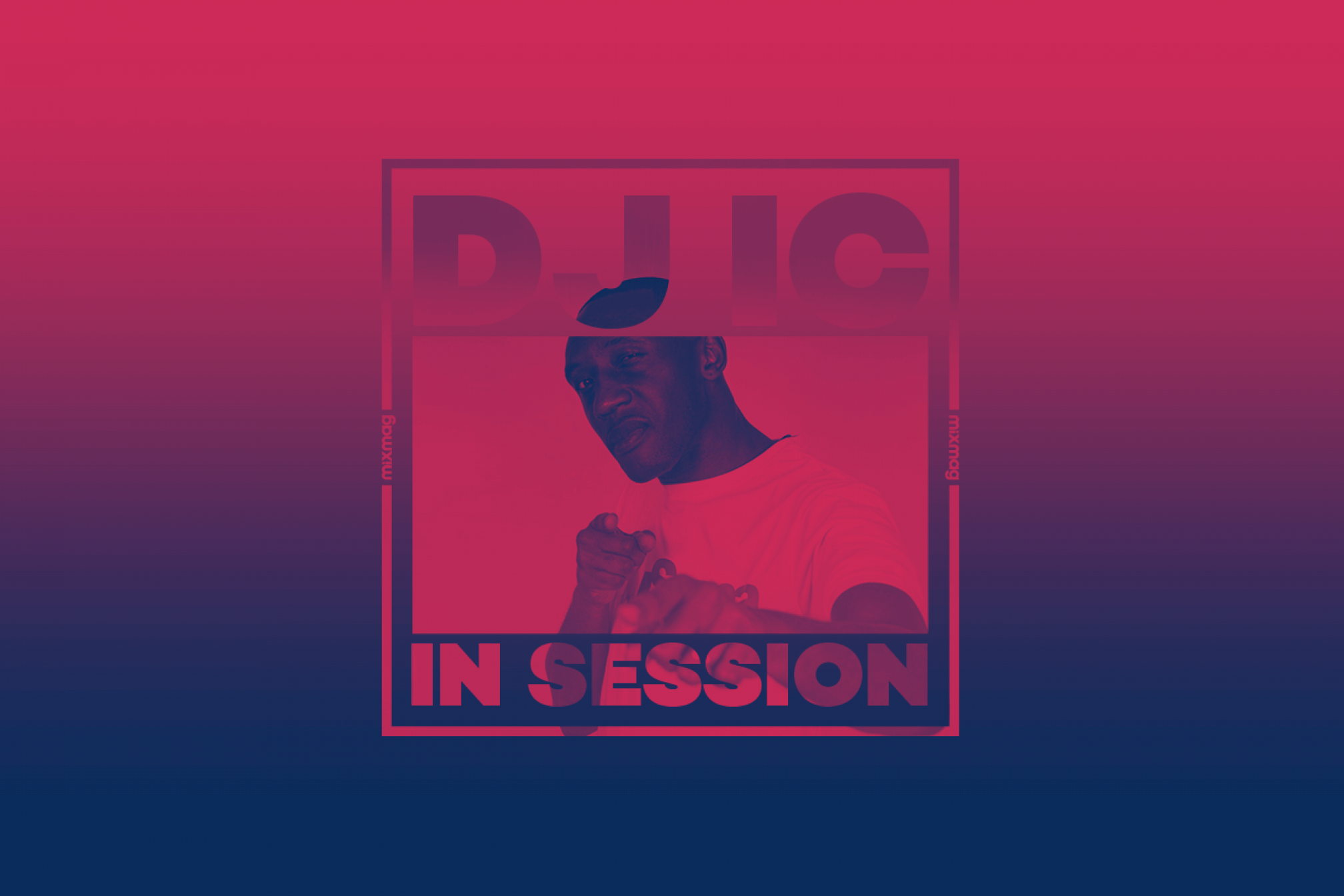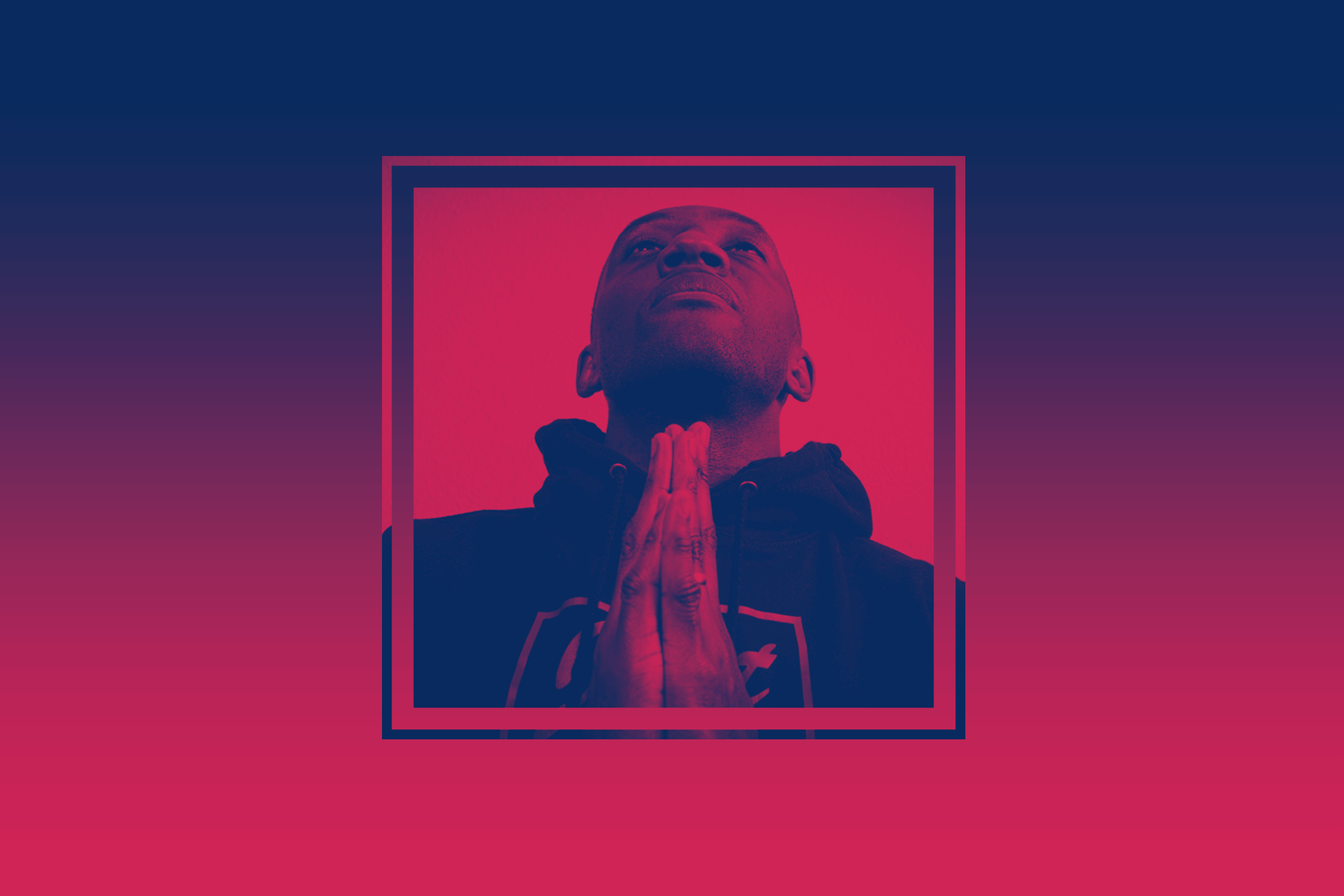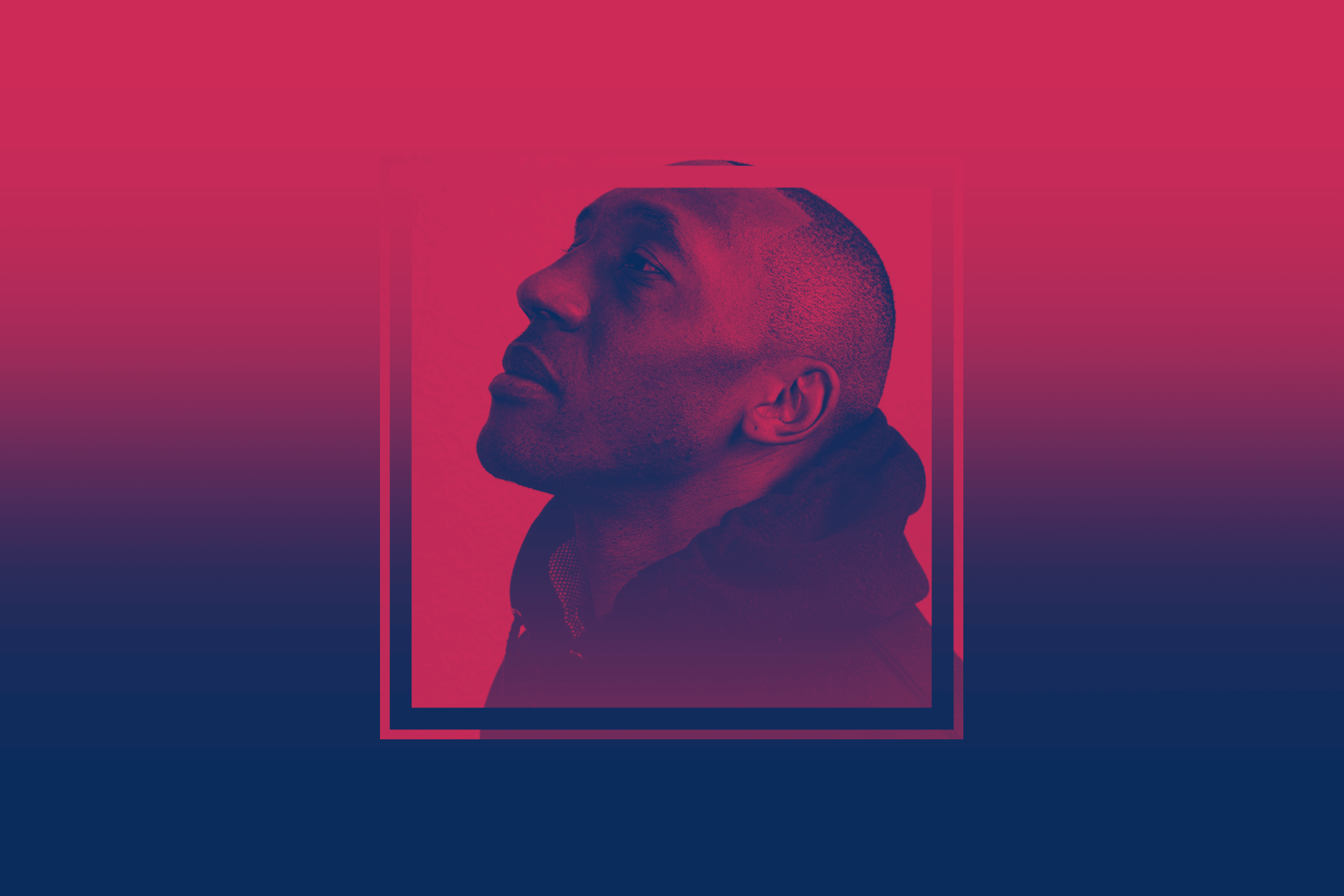 Music
Music
In Session: DJ IC
London house veteran DJ IC comes in hot with a energised mix of brand new afro house
DJ IC is a veteran of the London house scene.
His career stretches back to the early 00s when he began cutting his teeth as a DJ on Taste FM as part of the Aylesbury Allstars, spinning garage and grime for his friends Tippa, Ricardo and Kaspa D to spit over. Named after the estate in Walworth where they grew up (and where Tony Blair gave his first speech as British Prime Minister in ‘97), the artists styled themselves as “South East London’s finest garage crew”, embodying a love of new music and a collective, community-minded approach to producing and DJing that has defined DJ IC’s journey ever since.
Being a lifelong fan of jungle, banging out the low-end sounds of London came second nature to DJ IC but his trajectory as a musician was changed forever when Tippa turned up to his place with a bag of house records. An epiphany was had upon hearing Kerri Chandler’s ‘All The Downloads’ and the pair became obsessed with the sound, taking their first steps to becoming figures on the capital’s house scene with a show on pirate station 99.3fm and soon after forming the Circle collective alongside Supa D, Kismet and Feva that is still in operation today.
Read this next: In Session - Supa D
DJ IC continued to work the city’s club circuit, becoming a regular face in the booth and on the dancefloor at Cream Of The Crop, the legendary garage and r’n’b club night, where he made links with contemporaries like Heartless Crew, Jason Kaye, Spoony and Mike ‘Ruff Cut’ Lloyd, as well as paying his dues at hip hop and r’n’b nights where he’d be called in to play UK funky. On air, the Circle crew began a residency on Deja Vu before being snapped up by Rinse FM and DJ IC’s love for radio has extended to sets on BBC 1xtra, Kiss FM Australia, Ministry of Sound Radio, Flex FM and Switch. This consistent workrate has also paid off with regular club bookings coming from Ministry, Tippa’s Yellow party, House Warming and It’s My House as well as Circle’s regular raves and the Spreadlove and Originals festivals.
For the past few years DJ IC has been embedded within London’s thriving afro house movement, releasing a dizzying array of mixes (including his All Shades Of The Drum mix series and Drums Radio show that he hosts with his crew My Tribe My Vibe) and as well as refining a pulsating production style evident on his ‘Vector’ EP for HouSupa and the ‘Devil’s Child’ single for Clubshine Records along with collaborations with South African artists such as DJ Jim Mastershine, Native Tribe, Tabia and Team Distant. The My Tribe My Vibe radio show, dedicated to platforming emerging afrohouse talent, reaches 2000 people every Monday morning.
“I don’t tend to play the regular tracks. Most DJs can do that, I’ve always been the one to flip the record over and check out side B. This gives people a different feel, a different experience,” he tells us of his approach to always playing the unexpected and his relentless thirst for new music. His In Session is a perfect reflection of that energy. Let’s go!
You started out in jungle. How did you make it to house?
That's a very interesting question. We were in a group previously called Aylesbury Allstars, it was the grime era at that point, and that came to an end. I've always played jungle throughout anyway but then a good friend of mine, Tippa, came over to mine with a load of records and he said, "go through these!". So we started playing house and I think I picked up a Kerri Chandler track, I think it was ‘All The Downloads’ if I remember rightly and the track just touched me straight away. And we evolved from there: we were on [pirate radio station] 99.3fm I think it was (Big up Danny Blaze because I think he hooked us up) and then before you know it Circle came about. That's myself, Tippa, Supa D, Kismet and Feva. That was a very interesting time, we were on Deja Vu and then we went on to Rinse. So that's how I got into the house scene, that's going back to the early 2000s. It went from there.
We always play outside the box, always have done and always will. At the time, we had a lot of comments, "these guys won't stand the test of time; give them three months, six months, they'll be gone." Twenty-plus years later, we're still here doing what we do. And obviously individually and collectively we've got a big following. So it just goes to show: you stick to what you believe in and stick to what you love and those who want to be part of it obviously will be, so we're thankful to everyone who continues to support.
You’re making and DJing a lot of afrohouse - how did you get into the scene and what excites you about the sound?
Six years ago I had to make a conscious decision, which was a difficult one; I had to take time away from music to study, because I was doing an accountancy degree. It was very difficult trying to study and do exams. You know, I've got exams on Saturday morning at nine o'clock and I'm coming in from a rave at six – it wasn't happening. So I had to stop doing the radio shows on Rinse, pull back from playing at events, it just wasn't happening. It was too much. So during those six years, where I was literally just working and studying, I was listening to a lot of afro house. And whatever scene I've been in, I think one thing that's always stood out – and this is why we're still here today as so called 'underground' DJs – is that we never just jump on a scene, we always do our research, we get to know who's who, who the producers are, what tracks they've made. We might look at the latest tracks but we always look at the back catalogue as well. So I did that over the six year period that I was away from music so that when I did come back I found myself in the afro house lane.
Read this next: Motherland is the epicentre of London's afro house movement
I put up a few mixes at the time, I think I was putting out a mix every couple of days because I just had so much music, but they weren't all afro house, they were soulful house, deep house, tech-house. And then I remember posting up my afro house mix and the amount of messages that I got in my inbox, a lot of people loved it. And then because I'd already done my research, I just stuck in that lane. Like the other scenes in house, I've got a lot of connections now, I've thankfully made a good group of friends, not just here in the UK but mainly over in South Africa and within Europe. I've got a lot of people in South Africa reaching out to me as well so I try and put them on our radio show My Vibe My Tribe which is on Drums Radio. We host The Commute radio show which is between eight and 10 every Monday morning. So we've got our resident DJs Bobby Digital, HardiHood and myself but we mix it up so we get a lot of guest mixes on as well. And if you look on the SoundCloud, that speaks volumes. If you look at the names that we've got and people who have done guest mixes for us, that shows what we're doing is obviously good and people enjoy it. I've got another release coming out shortly with Massive Chemicals called 'Never Let You Go' with a chap called Lyric and that's on an Amapiano vibe.
You’ve always played on pirate radio and dance music radio stations - how have radio sets informed your career?
Radio stations have been a massive part of my journey. Whether it's been on radio stations permanently or doing guest shows, that's a platform where sometimes you would not have the ears of the listeners already. A big one for us was Taste FM. I think that's how my name formed solidly. Aylesbury Allstars were on Taste every week, we built up our following and it evolved from there. But radio stations, I think some may take them for granted, but I never do. When you do this and you're on certain platforms, you're reaching out to people that probably never would have known who you are or what you're about or what music you play. So I'm always thankful for the stations we've been a part of. I think they've played a massive part in where we are today.

Tell me about your decision to study accounting.
A lot of my friends have a degree. I went to school, got good grades, went to college studied IT and only did that because of my uncle, who I look up to, he developed software. So being a young kid and always going up to my uncle's – he's big in the house scene as well, he knows a lot of people – he was a role model for me and I thought, yeah, I want to do IT for my uncle, I stuck at it but I bloody hated it. So as you get older, circumstances change, I've got children as well, so I thought, I need to do something that's solid. So I thought, people are always going to need accountants, I'm pretty good at maths, so why not? I stuck at it, I got my degree and I've built my own business now. So that's the decision, that's the reason why I took a step back from music. That was the one of hardest decisions I've ever had to make. Because as a person who's passionate about music, to step away and to see my friends playing every week, on the radio every week, and not being a part of it hurt. But I knew at the time, deep down, that long term it was going to benefit me massively.
You’ve been DJing for well over a decade. What keeps you motivated?
The freshness of the music and my peers. I just love music anyway, I grew up around music, Mum was always playing music most of the week, just blaring out reggae. I love getting new music. What motivates me is also seeing my peers: At the time when we were on Rinse FM, myself and Kismet used to make music and every week we'd come up to the show with new music to play. Obviously we're in the same team, we're in the same camp, but it's friendly competition, so he will play a track and I'll think, oh my god, this is an absolute banger, I want to go home and make a new one to try and make something better! But actually what you're doing is you're building up each other's catalogue and you keep pushing each other and as DJs that's what we do too. Someone will do to a set and you think, mate that was a quality set! When it's your turn you want to do an even better set. And they're the things that drive you and keep pushing you.
Read this next: 20 Black UK house music acts you should know about
It's the same with my friends who make music, they'll send me music, I get music all the time. And it just makes you want to go in the studio and make it even better tracks or something on that level. So they're the things that drive me; not only the friendly, in-house competition, but also something to please people when they're sitting there and they want to listen to good music. I'm at the age now where I'm trying to make good music, not just beats. Music with longevity, music that holds for years, so that's going to be the test for me now if I can do that. I know I can make the beats for the dancefloors but can I make the beats to stand the test of time? So that's where I'm at now. That's what I'm going to try and aim for.
You’re in Circle as well as My Tribe My Vibe - what’s the importance of community?
I grew up on the Aylesbury estate and community was massive. I was one of the youngers out of those on the estate. Within my peer group I was still one of youngest. A lot of the olders looked after me and guided me to always make the right decisions. It was a sense of family, an extended family, hence why when people see me say "bro" and "sis", they think it's because it's the words of today. Actually, I'm saying it because that's what I mean, because they're people I grew up with and always looked out for me. This is where we are now and we always try to help the youngers who are also coming through. You talk about community and that's lost in today's society and that's something that, as someone who grew up with it, feels a bit hurt by that. Because a lot of the kids growing up today, they don't have that sense of community. Everyone's like, "I'll look out for myself" and it shouldn't be about that. You should always be proud of where you grew up, your community and people who've always been in that area. You need people to not just look out for you, but sometimes you need people to talk to, sometimes you need people to vent to, cherish the good times as well as the bad. And that's what community meant to me when I was growing up. You can move that over to the music side of things as well. There was a lot of sounds when I was growing up, we were 11 or 12 years old on the estate and we're going to house parties with the olders, you had people from the estate but also Peckham, Dulwich, Croydon. Music connects people. That's what I saw within my community. That's something that a lot of the generation today probably won't get to experience.

From a working class point of view, there’s far fewer youth clubs, it’s harder to get benefits, councils are underfunded and that could promote that more individual mindset?
You hit something there. We were always in youth clubs and thankfully then they were open every day. Even the youth club workers, they used to put on football tournaments, do go-karting and Chessington World Of Adventures or Thorpe Park - we used to do loads of things. And sometimes they would put on a little rave for us, so we'd be playing in the youth centres and some people would come from the block and you had friends MCing and stuff like that. That played a massive part for us as well. So if anyone's still working and trying to encourage the youth to do something productive and positive than big up to you.
You have your own online mix series All Shades Of The Drum. Can you tell us about it?
I was bringing out a release at the time, I used to work with a label in Brazil, and how it came about is that I had the title of the mix, I called Just Doing Me and the idea behind that was to show that actually, I've always been someone who plays differently to everyone else. So Just Doing Me represents what I'm doing here, this is my style, my flavour and I hope you enjoy. That then transpired into All Shades Of The Drum. It's a completely fresh platform that I created but within afro house there's so many different spectrums: Latina afro sounds, deep, tech, tribal sounds, so All Shades Of The Drum I created so I could predominantly play different types of afro house and present that to people.
Tell us about your In Session mix.
I knew I had to come with something vibey, if you like, something where you know that it's party time. I can go soulful, I can go spiritual, but for Mixmag In Session, you can't go clubbing at the minute, so if you want to vibe in your house then you definitely need to listen to this. It's a combination of deep afro house flavours, some tech tracks, and I think I topped it off with a couple soulful tracks as well, just so you get a nice journey. I always like to build up my mixes, I never just jump straight in and then you get into the middle section and it just goes off! You know what I'm bringing and then towards the end it tapers off into nice soulful vibe so I hope you enjoy it.
Seb Wheeler is Mixmag's Head Of Digital. Follow him on Instagram
Read this next: Get the best of Mixmag direct to your Facebook DMs


